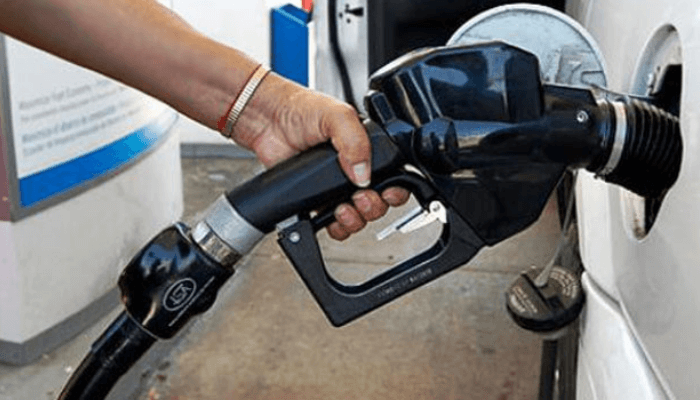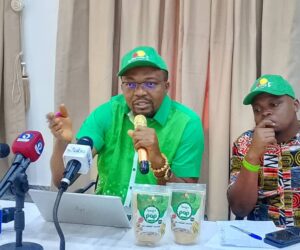The federal government of Nigeria has approved a 15 percent ad-valorem import tariff on Premium Motor Spirit (PMS) and Automotive Gas Oil (diesel), a move designed to protect local refiners, including the Dangote and modular refineries, from cheaper imports and to strengthen domestic energy security.
In a confidential memorandum seen by BusinessDay dated October 10, 2025, signed by Zacch Adedeji, the chairman of the Federal Inland Revenue Service (FIRS), and addressed to Tinubu, the proposal sought approval for a “measured import tariff on Premium Motor Spirit (PMS) and Diesel, aimed at reinforcing national energy security, safeguarding local refining capacity, stabilising the downstream market, and ensuring a fair and competitive pricing environment.”
The newly approved tariff will impose a 15 percent ad-valorem duty on the Cost, Insurance, and Freight (CIF) value of imported petrol and diesel at the point of discharge.
Payments are to be made into a designated Federal Government of Nigeria (FGN) revenue account, with verification by the Nigerian Midstream and Downstream Petroleum Regulatory Authority (NMDPRA) before clearance.
According to the memo, “the reform will accelerate Nigeria’s path toward fuel self-sufficiency, protect consumers and investors alike, and stabilise the downstream petroleum market.”
The introduction of the tariff is designed not to generate revenue but to “align import costs with domestic realities while preserving affordability,” the document emphasised.
BusinessDay learnt the Crude Oil Refinery Owners Association of Nigeria (CORAN), a consortium of private refinery investors, had originally proposed a 25 percent import tariff on refined petroleum products to protect local producers. Government sources familiar with the deliberations said the rate was scaled down to 15 percent after consultations involving the Ministry of Finance, FIRS, and the NMDPRA.
“The local refiners argued that imported products were being dumped at artificially low prices,” one senior official said. “They proposed 25 percent, but after evaluating the inflationary and market impact, the President settled for 15 percent as a transitional measure.”
Read also: Seplat’s earnings hit $1.1 billion in nine months, powered by Mobil acquisition
The government’s justification for the new tariff centres on the need to protect emerging domestic refiners such as the Dangote Refinery and other modular plants from being undercut by cheaper imports.
The memo noted that while Nigeria’s diesel refining capacity has reached self-sufficiency, “price instability persists, partly due to misalignment between local refiners and marketers.”
It added that “import parity remains the benchmark for pricing but often sits below the cost recovery point of local producers, particularly during currency and freight fluctuations.”
Left unchecked, the document warned, “these risks undermine our nascent refining sector at the very point of recovery.”
The government’s responsibility, it said, is “twofold: to protect consumers and domestic producers from unfair pricing practices and collusion, while simultaneously ensuring a level playing field that allows domestic refiners to cover costs and attract continued investment.”
The approved tariff framework will take effect 30 days after notification, giving importers a transition period to adjust cargoes already in transit.
President Tinubu approved the proposal with handwritten instructions on the final page of the document, stating: “Approved as prayed for implementation immediately.”
The note was dated 24/10/25 and countersigned by senior officials, including the chief executive of the Nigerian Midstream and Downstream Petroleum Regulatory Authority (NMDPRA).
The implementation will be jointly managed by the NMDPRA, the Nigerian Customs Service (NCS), and the Federal Inland Revenue Service (FIRS).
The memo outlined clear directives for execution
“(a) Approve the introduction of a 15% ad-valorem import duty on Premium Motor Spirit (PMS) & Diesel… (b) Direct the NMDPRA and the Nigeria Customs Service (NCS) to implement the 15% import duty with effect after a 30-day transition period… (c) Direct NMDPRA to issue appropriate Regulations in this regard and take local production into account before issuing import licenses.”
In addition, the President directed a periodic review of the tariff “and its continued necessity, including provisions for scaling or sunset measures, as domestic refining capacity expands.”
The policy draws its authority from the Petroleum Industry Act (PIA), particularly Sections 71 and 72, which empower the NMDPRA to impose “public service obligations” on licensees in relation to supply security, economic development, and pricing fairness.
Section 71(b) of the Act allows the regulator to “issue regulations imposing public service obligations on licensees in relation to matters which include security of supply, economic development, and the achievement of wider economic policy objectives.”
According to the memo, this legal framework “provides the legal basis for the proposed import tariff,” and Section 72 authorises the NMDPRA to recover “any additional costs incurred in complying with public service obligations through a public service levy.”
By invoking these provisions, the government aims to reinforce local production while maintaining compliance with the PIA’s economic and social mandates.
15% duty adds N99.72/litre to import costs
While the new tariff is expected to marginally raise the cost of imported fuel, the government insists that consumer prices will remain competitive compared to regional averages.
At current CIF levels, the memo estimated that the tariff would add about N99.72 per litre to imported fuel costs. Despite the increase, “estimated Lagos pump prices would remain in the range of N964.72 per litre ($0.62), still significantly below regional averages such as Senegal ($1.76), Côte d’Ivoire ($1.52), and Ghana ($1.37).”
Officials argue that this adjustment “nudges imported landed costs toward local cost-recovery without choking supply or inflating consumer prices beyond sustainable thresholds.”
By contrast, the government expects that strengthening domestic refining and reducing import dependence will stabilise prices and limit exposure to foreign exchange volatility.
The Dangote Refinery, which began partial operations in mid-2025, is expected to benefit most from the new tariff. With a capacity of 650,000 barrels per day, the refinery aims to meet domestic fuel demand and export surplus to West Africa.
To prevent abuse or speculation, the document emphasises “a straightforward and transparent” process for tariff collection and monitoring. Tariffs will be paid into a Federal Government revenue account managed by the Federal Inland Revenue Service (FIRS), with end-to-end digital verification linked to NMDPRA discharge clearance.
“No cargo is to be released without proof of payment,” the memo stated. “Customs and NMDPRA will update import templates, supported by a public compliance notice to minimise speculation and rumour-driven volatility.”
The policy also requires that “local production be taken into account first before the issuance of import licenses,” ensuring that domestic refiners are prioritised.









